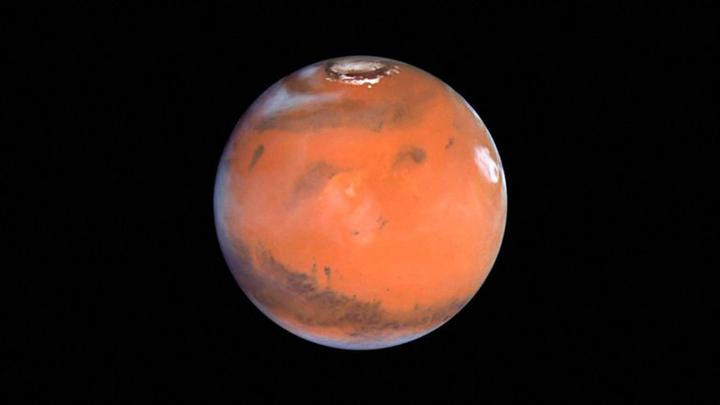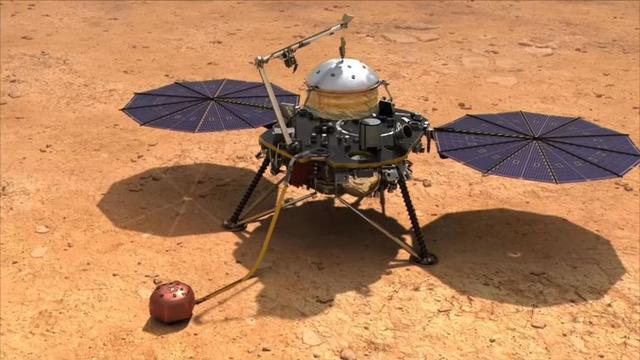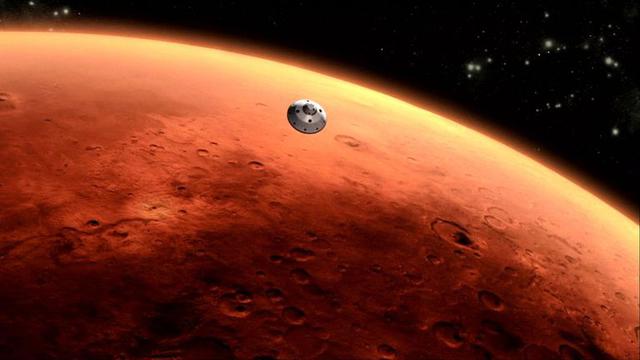
Mars, we hear you! NASA's InSight detects first likely 'Marsquake'
A NASA Martian rover has recorded what is thought to be a Marsquake - a tremor on the mysterious red planet.
The quake monitor attached to the robotic probe InSight recorded the faint rumbling sound almost five months after it arrived on the planet's surface.
Although the recording was made earlier this month, it was released by NASA on Tuesday.
Scientists at NASA's Jet Propulsion Lab in California are still examining the sound to learn more.
But so far they have concluded that it comes from within the planet, as opposed to being caused by outside forces such as wind.
The tremor - described by NASA as "quiet but distinct shaking" - was so faint, however, that if one of the same magnitude had happened in California, it would barely have been noticed.
Like the Moon, Mars does not have tectonic plates but both planets experience tremors caused by the process of cooling and contraction, which creates stress.
This means that the surfaces of the Moon and Mars are much quieter than Earth, which is constantly quivering due to seismic noise from the oceans and the weather.
Scientists are also looking at three weaker signals recorded by InSight's seismometer - on 14 March, 10 April and 11 April - although they said these were so small that they are unlikely to have been Marsquakes.

Image:The seismometer (inside the white domed shield) is attached to InSight. Pic: NASA/JPL-Caltech
We have already seen evidence of tremors on the Moon - thousands of Moonquakes were detected between 1969 and 1977 by five seismometers left on the lunar surface by NASA's Apollo missions.
InSight principal investigator Bruce Banerdt said: "InSight's first readings carry on the science that began with NASA's Apollo missions.
"We've been collecting background noise up until now, but this first event officially kicks off a new field: Martian seismology."

Image:InSight landed on Mars late last year. Pic: NASA/JPL-Caltech
It is hoped that, by studying the Marsquakes, scientists can learn more about how rocky planets - such as the Earth -were formed.
Meanwhile, InSight's other task is not going quite as well: it has managed to dig only a foot or two into Mars - not enough to measure the planet's internal temperature.
It is not yet clear how the digger got stuck.
(SKY NEWS)

